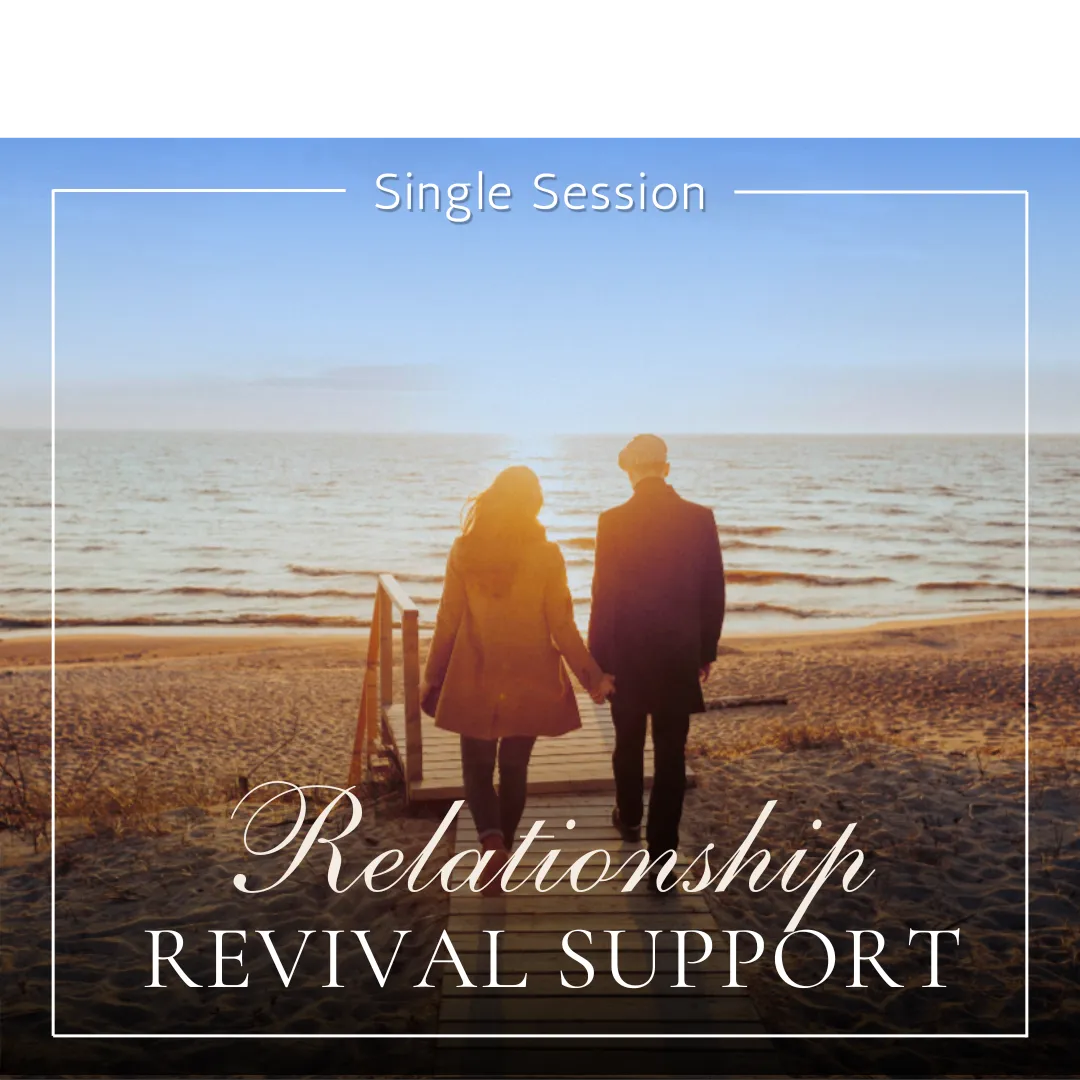Seekers of Authentic Inner Healing
Release Trauma and Reclaim You True Self
Trusted by clients worldwide to break through trauma and emotional barriers to experience real, lasting freedom.
Start Your Transformation Today!
Take the first step to Freedom Here
alida Diosa
Meet Your Trauma Release Expert

Alida supports individuals who feel emotionally drained and stuck after trying countless tools to ‘fix’ themselves.
Specializing in breaking free from deep-rooted trauma, she helps clients rediscover their authentic selves—without the need for years of traditional therapy.
Through her unique and gentle trauma release approach, clients often experience profound relief, grounded calm, and a renewed sense of connection within their body, mind, and spirit—transformations they never thought possible.
Alida’s mission is simple yet powerful: to help you release what’s been holding you back and create real, lasting change.
The process
The Building Blocks of Emotional Freedom

Component 1
Holistic Alignment
Integrating body, mind, and spirit to facilitate trauma release. By aligning these elements, this process empowers the body to release deeply held burdens.

Component 2
Body-Centric Awareness
Guiding clients to reconnect with bodily sensations, overcoming fear and resistance to support trauma release.

Component 3
Somatic Wisdom Path
Using empathetic understanding to interpret body signals, guiding clients on unique healing steps through proven somatic methods for consistent, positive results.
Testimonials
Real Results Shared by Our Clients
Joey from Australia 🇦🇺
Torey from US 🇺🇸
KIMBER from Mexico🇲🇽
AMANDA from Canada🇨🇦
Adriana was facing issues that traditional therapy couldn’t address…

I had struggled for years with difficult moments from my past that regular therapy couldn’t fix. Then I worked with Alida, and her gentle yet powerful guidance truly helped me release those blocks. Alida’s heart-centered approach made the process comfortable and healing. I can’t wait to recommend her to all my friends—it’s been a life-changing experience!
Adriana | California
Serena found the tools she needed to move forward…

Even after just one session with Alida, I felt a noticeable shift. I walked away with practical tools that I could immediately apply in my day-to-day life. Alida made me feel safe and supported throughout. If you’re considering a session, I highly recommend it—it’s been incredibly helpful for me.
Serena | Washington
Petra experienced a major shift after just one session…

Alida is compassionate, knowledgeable, and so easy to connect with. Her deep understanding of trauma and how to release it from the body, combined with her energy healing, made all the difference. I felt a major shift after one session. I highly recommend Alida for her incredible skills as a Trauma and Energy Clearing Coach—it truly transformed my inner and outer worlds!
Petra | Arizona
Freebie To Ground and Shift Your Core Energy!
3 Days FREE audio practice
Get my free guided audio practice and feel the power of aligning your body, heart, and spirit through this guided experience. Discover the real impact a holistic approach can make in your life, gain clarity, balance, and lasting change.
Available for free for a limited time—take advantage of it while you can!
The facts
Results You Can Feel, Backed by Experience
We are proud of the results our clients achieve. This process is built on real outcomes, shaped by a commitment to transformation and efficiency. With each session, Alida’s methods evolve to deliver deeper satisfaction in less time.
80% of Clients
Experience profound emotional release and a significant breakthrough in their very first session.
9 out of 10 Clients
Report feeling lighter, more connected, and less burdened after only three sessions.
1% Not Happy
Some clients feel discomfort with rapid emotional shifts—but it often marks profound transformation.
Over 80%
Clients describe the session with Alida and the process as faster and more effective than they anticipated!
60% of Clients
Realize their seemingly scattered problems stem from one core block—and resolve it in just one session.
The Freedom of Reconnection
What Transformation Feels Like
A Sense of Lightness and Relief
Release the emotional weight you’ve been carrying, creating space for clarity and ease.
Clarity About Deep-Seated Blocks
Discover the hidden patterns and blocks that have held you back, allowing you to see yourself with newfound understanding.
A Renewed Sense of Connection
Experience the spaciousness of freedom, the expansion of possibilities, and the alignment with your authentic self, as you reconnect with parts of yourself that were once out of reach
Start Your Transformation Today!
Take the first step to Freedom Here
Who This is For
Signs You’re Ready (or Not) to Work with Alida
Ready to Work with Alida ⇓
Even if you don’t feel fully ready, you sense a pull to change. Real transformation is a choice, and while doubts linger, something within you is urging you forward.
You’ve tried other methods, but lasting change still feels out of reach. To truly break through, you recognize the need for dedicated guidance and expert support.
You trust a holistic approach that connects body, mind, and spirit. You’re open to exploring new depths and believe that genuine healing addresses all parts of yourself.
Not Quite Ready Yet ⇓
Fear of change feels stronger than your desire to heal. The thought of facing and releasing old patterns feels overwhelming right now.
You feel gratification in handling things alone, even if progress is slow. Seeking support doesn’t resonate, as you feel you “should” figure it out by yourself.
You’re saying “yes” in thought, but procrastination holds you back from action. Even with recognized benefits, taking that first step still feels like a hurdle.
Offerings
Your Pathways to Deep Healing
Every journey to healing is unique. Alida’s approach honors this by offering a range of services tailored to meet your specific goals and deepen your experience of trauma release. Below are three of the most acclaimed offerings—each designed to create profound and lasting change.
An impactful yet gentle first trauma release experience
First Steps to Freedom Trauma Release Session
This trauma release session combines gentle, evidence-based techniques to target your triggers, offering immediate insight and relief. Step into a life where your body’s wisdom leads your healing, freeing you from past burdens.
Freebie To Ground and Shift Your Core Energy!
3 Days FREE audio practice
Get my free guided audio practice and feel the power of aligning your body, heart, and spirit through this guided experience. Discover the real impact a holistic approach can make in your life, gain clarity, balance, and lasting change.
Available for free for a limited time—take advantage of it while you can!
clients common worries
FAQ - Frequently Asked Questions
Is this like therapy?....'cause I tried that already and stopped.
My Trauma Release Work is Different From Therapy—And That’s a Good Thing I’m not a therapist, and my approach goes beyond traditional therapy. We work with your body’s innate wisdom to gently release emotional blocks from the past—something rarely achieved in talk therapy.
But, if you’re managing significant mental health issues, additional support from a licensed professional might be needed. My focus is on emotional release through the body, not psychotherapy.
Will I have to revisit painful memories?
Not at all. My method works with the body’s wisdom to release trauma without the need to relive or retell all the painful events. Whenever something is too difficult to process consciously, we guide the body to switch and continue the healing process unconsciously. We avoid revisiting the entire story because there’s no need for the body to process it, ensuring a gentle, effective approach.
Do you take my insurance?
Currently, insurance doesn’t cover advanced mind-body healing methods like trauma release work.
While insurance may catch up one day, this approach is not yet included. Depending on your coverage, you might be able to use Health Savings Account (HSA) funds, but you’ll need to confirm this with your provider.
If you’re a business owner, you may be able to deduct coaching services as a business expense. Be sure to check your state or country’s specific tax laws.
Of course, we don’t offer legal advice, so it’s best to consult with a tax professional for any details.
Can I do this work if I'm on medication?
I’m not a licensed healthcare provider and can’t advise on medications, but my gentle Trauma Release Work is highly effective alongside them. Many clients have used this work to build a strong foundation and, with their doctor, explore adjustments to their medications. Every person is different, so always consult your healthcare provider before making any changes. As a reminder, this work is not FDA-approved and isn’t intended to diagnose, cure, or treat any disease.
For online sessions – What if I’m not tech-savy?
I completely understand—technology can be overwhelming! For my 1:1 online sessions, I use Zoom, which is very user-friendly. Whether you’re on your computer or phone, I’m happy to walk you through the setup step by step. Many of my clients have found it easy to use, and they really enjoy the convenience of video chat. Plus, Zoom is free and widely accessible, so you don’t have to worry about complicated software.
Fundamental Trauma Concepts
Trauma Knowledge
What is trauma, really?
Trauma is the deep-seated psychological response to highly distressing events, often extending from unmet needs during our developmental years. It significantly impacts mental, emotional, and physical well-being, stemming from the body's reaction to distress. It's important to note that trauma is stored in the body, and the fact that it can become unconscious doesn't necessarily mean it has been fully processed.
What are common signs of Trauma?
Signs of trauma often include recurring triggers, nightmares, anger, anxiety, lack of motivation, detachment from others, inability to feel emotions, difficulty concentrating, and a strong avoidance of situations, topics, or places linked to the traumatic event. While it varies for each person, a consistent inner discomfort, especially if recurring, can be a clear sign of unresolved trauma.
Can childhood trauma show up in adulthood?
Yes, childhood trauma can manifest in adulthood. Unresolved or unprocessed childhood trauma can impact an individual's emotional, mental, and physical health in their adult years, influencing behaviors, reactions, and overall well-being. As children, without adult support, it's incredibly challenging to process trauma by ourselves. It's often in adulthood that unresolved trauma resurfaces, seeking resolution and processing.
How can trauma affect daily life?
Trauma can significantly affect your daily life, influencing your emotions, relationships, and overall mental health, often leading to ongoing stress, increased anxiety, and difficulty coping with various situations. For instance, it might manifest as avoiding places or situations that trigger distressing memories, causing social isolation and challenges in personal connections.
Is it possible for trauma to lead to physical health issues?
Yes, trauma can manifest in physical health issues. Chronic stress from trauma can affect the body, leading to conditions like headaches, digestive problems, weakened immune responses, and even chronic pain.
Can trauma impact one's ability to trust others?
Trauma can significantly impact an individual's ability to trust. It often creates barriers in forming trusting relationships, resulting in skepticism, fear, and difficulties in establishing connections due to past traumatic experiences.
How does trauma affect the brain?
Trauma can significantly affect brain functioning, leading to changes in memory, decision-making, and emotional regulation. Additionally, trauma in the body creates fragmentation in our perception and brain abilities, impacting various cognitive and emotional processes.
Are flashbacks a trauma symptom?
Yes, flashbacks are a common symptom of trauma. They're vivid, distressing memories of the traumatic event. The body's constant signaling through flashbacks is a call for support, prompting individuals to seek assistance in processing these distressing experiences.
What are the signs of unresolved trauma?
Signs of unresolved trauma include anxiety, recurring nightmares, difficulty concentrating, and avoidance of triggers related to the traumatic event, such as crowded places or specific situations that remind the individual of the distressing experience.
What is Trauma Bonding?
Trauma bonding typically arises from abusive cycles, creating a strong emotional connection between an individual and an abuser, often initiated during childhood. Depending on its severity, it might become a complex subconscious addiction, necessitating the assistance of a trauma specialist for resolution.
How does trauma bonding form?
Trauma bonding examples include emotional reliance on an abusive partner, excusing their behavior, and returning despite recognizing the harm. Individuals struggle to create distance even when aware of the relationship's destructive nature, feeling discomfort or anxiety when attempting to break away. This emotional attachment can override rational understanding of the harm.
How can someone begin to break free from trauma bonding?
Because it involves a lot of relearning behavior, breaking free from trauma bonding is a journey that might take time. Working with a trauma specialist offers the best chance of healing and breaking free from these patterns, providing hope for a brighter, healthier future.
Can trauma bonding be overcome?
Yes, trauma bonding can be overcome through tailored approaches, often involving a Trauma specialist, emotional healing, and creating healthy boundaries. It may vary for individuals based on the severity and personal healing journey.
What is Generational Trauma?
Generational trauma is the transmission of trauma-related symptoms and behaviors across successive generations, often manifesting as behavioral patterns and emotional responses that echo the trauma experienced by the family lineage. This cycle of unhealed trauma affects the emotional well-being of successive family members.
Is transgenerational trauma real?
Transgenerational trauma is indeed real. It involves the transmission of trauma's impacts across generations without direct exposure to the traumatic event itself. This means that the emotional patterns and effects of trauma persist and influence future generations, even without them directly experiencing the original traumatic event.
How is Generational Trauma passed down?
Generational Trauma is passed down through the transmission of learned behaviors, stress responses, and emotional patterns from one generation to the next, perpetuating a cycle of unresolved emotional distress. Alcoholism is a recurring behavior passed down through family lines.
How can generational trauma be healed or interrupted?
Breaking free from generational trauma involves recognizing the patterns and behaviors passed down through generations. It's essential to detach the emotional connection from perpetuating these patterns. Seeking guidance from a Trauma Release Coach can aid in this process. The key is to interrupt the cycle and create new, healthier behavioral and emotional responses.
What is the fawn response in trauma?
Fawning is a trauma response rooted in people-pleasing or compliance, often observed in individuals exposed to traumatic experiences. It involves prioritizing others' needs and compliance as a means of coping. In nature, this behavior might have helped to maintain social bonds and ensure safety within a community.
Is people-pleasing a trauma response?
Yes, being a people pleaser often results from trauma. It's a coping mechanism that seeks to avoid conflict, prioritize others' needs, and create a sense of safety. This behavior emerges from a place of survival and can be tied to past traumatic experiences.
Why do trauma survivors become people pleasers?
Understanding the roots of people-pleasing tendencies is vital for healing and personal growth. Being a people pleaser often originates from a deep need for approval and safety, often linked to past traumatic experiences. Coping mechanisms take time to be accepted and rewired by the brain and body.
How can people-pleasing patterns begin to heal?
Healing from people-pleasing often begins with observing moments where the need for acceptance arises, allowing yourself the space to explore without judgment. However, addressing this can be challenging, which is why working with a trauma specialist is recommended.
Why is being highly independent a Trauma Response?
High independence often stems from childhood experiences where relying on others wasn't safe or supportive due to neglect or other challenging circumstances. This response may persist into adulthood as a coping mechanism or a need for control.
How can grief affect mental, emotional, and physical health?
Grief can significantly affect mental, emotional, and physical well-being. It may lead to emotional distress such as feelings of sadness, anger, or confusion. Relationships can also be impacted, often causing strain or isolation due to changes in behavior or emotional availability. Mentally, it could affect your ability to concentrate, make decisions, or cope with day-to-day tasks. Seeking support and allowing space for healing are vital during this period.
Why does grief sometimes feel unresolved or prolonged?
The duration of the grief process is highly individual and varies widely. There isn't a specific timeline or set period for grieving, as it's influenced by the nature of the loss, the relationship to the deceased, and the individual's coping mechanisms. Specialized assistance can greatly assist in navigating this process.
How is grief affecting daily life?
Grief can greatly affect mental, emotional, and physical health. It brings emotional distress like sadness, anger, and confusion. Relationships might strain due to behavior changes, leading to isolation. Physically, disrupted sleep, appetite changes, fatigue, and stress could occur. Mentally, it can hinder focus, decision-making, and daily tasks. Support, space Specialized help are essential for healing.
Why does emotional pain sometimes feel physical?
Emotional pain can feel physical because the brain and nervous system do not separate emotional stress from bodily threat. When an experience feels overwhelming, the nervous system activates survival responses that affect muscles, organs, breathing, and hormonal balance. Over time, unprocessed emotional stress can show up as tension, fatigue, pain, or discomfort. This does not mean something is “wrong,” but that the body is communicating unresolved stress that may need gentle attention and support.
What are the symptoms of Religious Trauma?
Symptoms of religious trauma often encompass anxiety, guilt, fear, and negative self-beliefs arising from religious practices. These experiences, often enforced by caregivers or groups, may impose beliefs and behaviors misaligned with your personal values.
Can Ghosting someone cause Trauma?
Ghosting can potentially cause trauma, especially for individuals sensitive to abrupt disconnections or those in significant relationships. The sudden, unexplained break in communication can contribute to trauma symptoms.
Is it possible to heal from Trauma?
Yes, it's possible to heal from trauma, which involves releasing stored emotional difficulties. This is not achieved through reasoning alone but through releasing the trauma from the body. Working with a Trauma Release Coach or a trauma-informed specialist is highly recommended.
Do I need to identify my trauma to begin healing?
The very need to understand and pinpoint the specifics of your trauma might, in itself, be a trauma response—attempting to maintain control. Addressing this need for control and certainty can be an initial step towards healing. You don't have to identify the trauma to start working with a Trauma Release Coach specialist.
Start Your Transformation Today!
Take the first step to Freedom Here
Explore More Ways to Heal & Transform
- Understand the Process, discover The Journey to Emotional Freedom
- Testimonials:See Real Client Results & Success Stories
- Meet Alida – Your Trauma Release Coach Expert
- Explore Trauma Release Coaching Sessions & Offerings
- Free Resources for Healing & Growth
- Masterclassess & Upcoming Healing Events or Workshops

Certified & Trusted
Supporting your growth with proven care and integrity.

Results Guaranteed
Experience true transformation or your investment returned.
FOLLOW US

I believe that finding the right guide is the most important step in your healing journey. If you have any questions or just want to connect, please don’t hesitate to reach out. I read every message personally and am here to support you on your path. ~Alida💜

COMPANY
LEGAL
CUSTOMER CARE
+1 561 598 8937
MAILING ADDRESS
PO Box 33 Kirkland
BP Saint-Charles Kirkland,
QC H9H 0A2
Canada
As a trauma release coach, Alida Diosa provides powerful, holistic support for releasing trauma and emotional wellness. This work is not a substitute for medical advice or therapy. Always consult a licensed healthcare provider for your specific health needs.
Copyright © 2026. Alida Diosa | Trauma Release Coach . All Rights Reserved.




